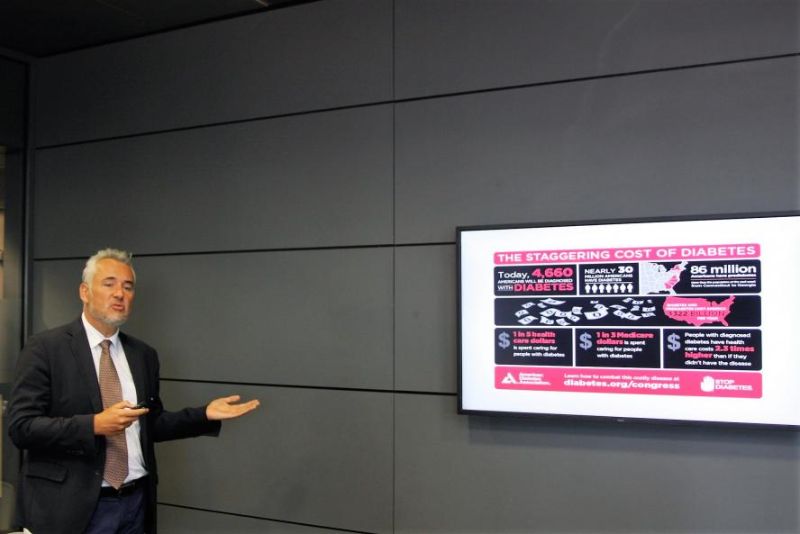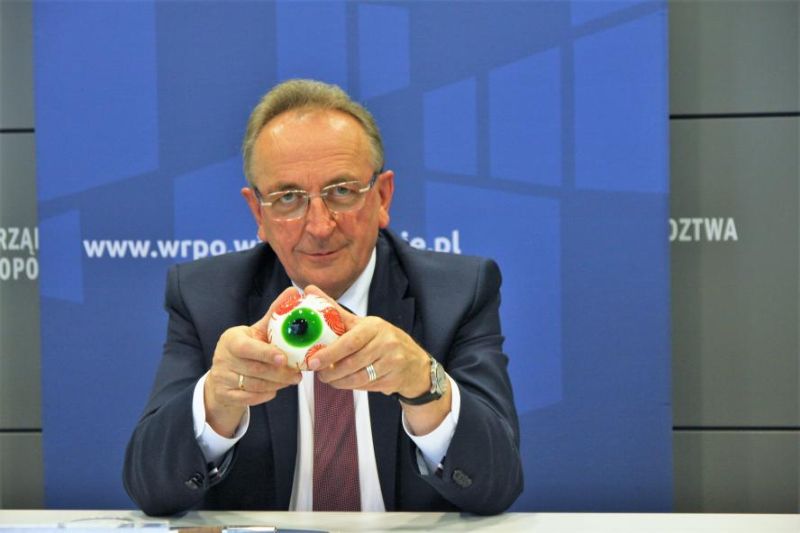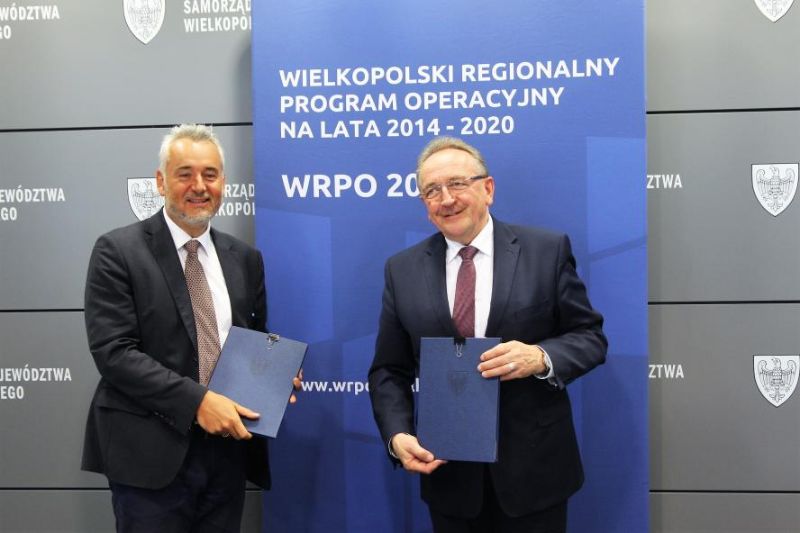Diabetic retinopathy prevention programme in Wielkopolskie Voivodship
- Homepage
- Diabetic retinopathy prevention programme in Wielkopolskie Voivodship
Diabetic retinopathy is the most common cause of vision loss in people of working age. It appears in almost all patients with type 1 diabetes and 60% patients with type 2 diabetes within 10 years of diagnosis. Diabetic retinopathy remains asymptomatic for a long time, and late diagnosis or poor treatment leads to deterioration of vision, in extreme cases to loss of vision. However, if detected early and treated correctly, it can remain under control and allow patients to remain active and independent for a long time; in more than 90% cases, it is possible to preserve vision.
Data from the International Diabetes Federation (IDF) in 2015 indicate that:
Worldwide, some 415 million adults suffer from diabetes.
By 2040, this figure is expected to rise to 642 million,
The proportion of people with type 2 diabetes is increasing in most countries,
75% adults with diabetes live in low- and middle-income countries,
The largest number of people with diabetes are between 40 and 59 years old,
1 of 2 people with diabetes is undiagnosed (46%).
Based on the health needs maps made available by the Ministry of Health, we know that there were 109,800 people with diabetes in Wielkopolskie Province at the end of 2014, placing Wielkopolskie in 4th place among the provinces with the highest prevalence of diabetes.
Epidemiological data in the 2017 Diabetic Retinopathy Barometer report shows that 93 million diabetics worldwide have diabetic retinopathy meaning that 1 in 3 diabetics suffer from retinopathy.
According to NFZ data, there were 5 560 residents of the Wielkopolska voivodship diagnosed with diabetic retinopathy in 2014-2016. CO means that few patients receive treatment.
Foundation for the Advancement of Ophthalmology "Ophthalmology21" in cooperation with Prof. Dr. Dorota Zozulińska-Ziółkiewicz, Head of the Department of Internal Medicine and Diabetology, K. Marcinkowski University of Medical Sciences, Poznań as of october 2019, is implementing a project co-financed by EU funds entitled. "DIABETIC RETINOPATHY PREVENTION PROGRAMME IN THE WIELKOPOLSKIE VOIVODESHIP".
The main objective of the programme is: an increase in the detection rate of diabetic retinopathy in people with diabetes in the Wielkopolska region by approximately 10% over the 3 years of the programme. The programme involves the use of artificial intelligence to examine fundus images and diagnose abnormalities. Funduscam examinations take place in 15 Diabetes Clinics across the Wielkopolska region.
All interested diabetologists and Diabetes Clinics are welcome to collaborate and contact the Project Coordinator:
Szymon Wilkanowicz
Foundation for the Support of Ophthalmology Development "OKULISTYKA 21"
ul. Mickiewicza 24 lok 3B, 60-836 Poznań
tel. 512 359 821, s.wilkanowicz@okulistyka21.pl
Project website www.retinopatiacukrzycowa.pl
A report by Głos Wielkopolski on the moment of signing the agreement with the Marshal's Office of the Wielkopolska Region.
Telescope material on our project (beginning 3:52)
https://poznan.tvp.pl/43376164/06072019-godz1830
Super Express material
https://www.se.pl/poznan/w-wielkopolsce-beda-wykrywac-retinopatie-cukrzycowa-aa-FuQ6-CCZ5-WESY.html
Bulletin of the Self-Government of the Wielkopolska Region
https://www.umww.pl/prawie-5-mln-zl-dofinansowania-z-wrpo-2014-na-badania-dna-oka-u-diabetykow
Signing of the contract at the Marshal's Office of the Wielkopolska Region in Poznań




